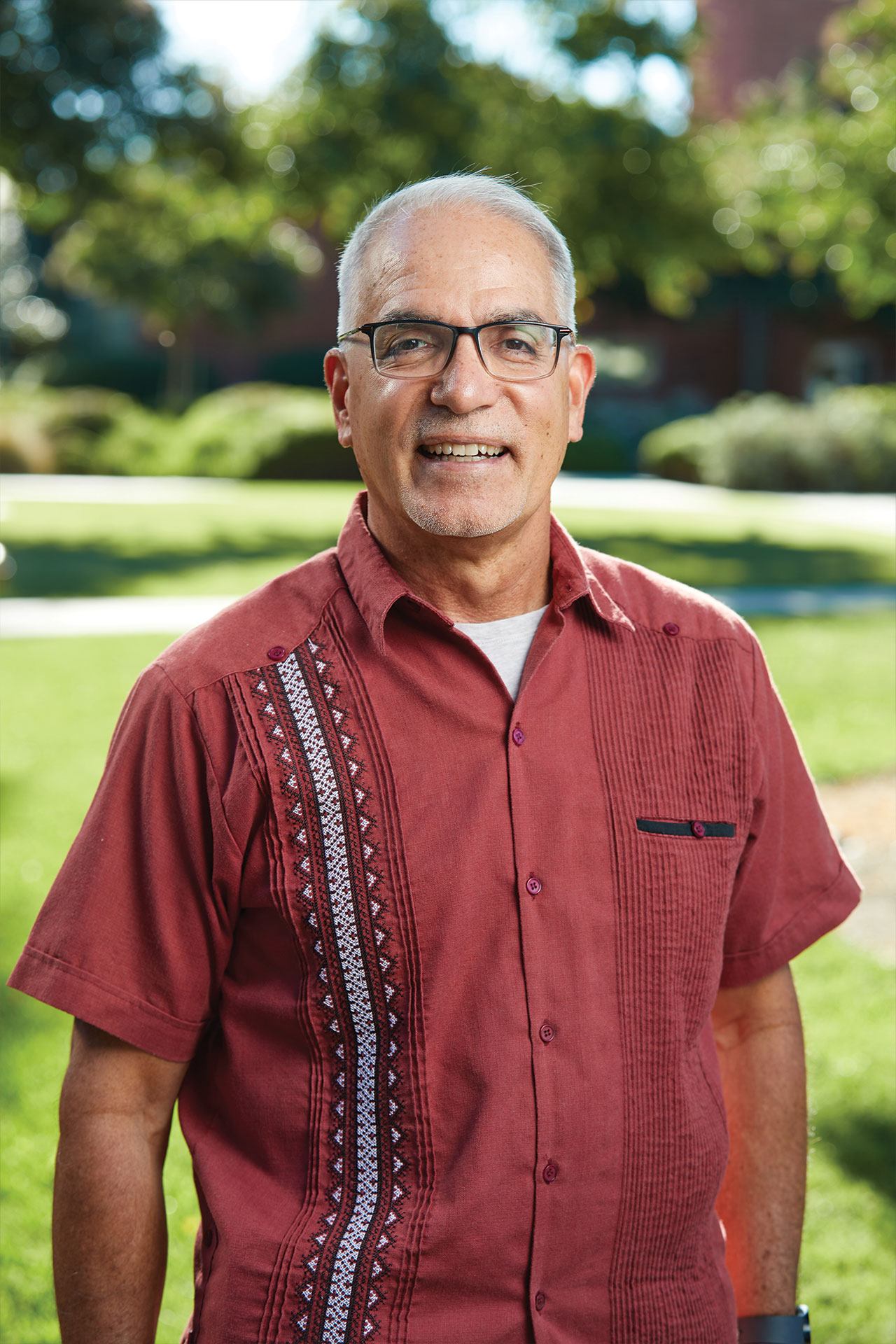Daniel Loera, EdD ’12, is the director of multicultural affairs for the Center for Multicultural Services at the University of La Verne. Loera has served the university for more than two decades and has been a driving force in supporting students, faculty, and staff during their professional and academic journeys. His work in providing diverse and inclusive programming and events on campus has ushered in a space for community empowerment.
What does the term “empowerment” mean to you?
Empowerment means standing tall with our feet firmly grounded in who we are, clear about what we believe in, and knowing that one can affect change. It means being connected to each other and recognizing that, unless we embrace each other as our authentic selves, anything short of that, we are deceiving ourselves about creating an inclusive community.
How is the Center for Multicultural Services empowering and serving the university community?
We work to create programs focused on asking fundamental questions of “who we are,” “how we impact each other,” and “is your voice represented.” There is always a need to educate and actively work to identify and dismantle oppressive policies, practices, and systems that impede full participation and equity for all. We are creating “space” for everyone to “be” and work to elevate what it means to be an equity-centered community.
Why are multicultural services important?
Creating spaces that encourage discovery and expression of one’s full self supports individuals to have meaning and significance, which then supports community building. The more we can raise awareness of our interconnectedness, the more likely we are to create caring, compassionate, and equitable communities.
What are the newest center services and how do they help promote belonging at the university?
Two areas of service that we are incredibly excited about are the Black and Latinx Scholars Living-Learning Communities, and the Access Program. Each affinity group is focused on providing additional support to minority communities and foster youth, and program areas with dedicated groups that focus on cultural wealth building and community building.
What is your favorite part about serving in your current role?
The idea that I may be able to make a difference in the life of a young person seeking to get through this structure we call higher education, to then do the work that will transform not only their life, but the lives of their family and community.
Who has inspired and empowered you to become a leader?
Initially, it was due to a void of leaders in my life that led me to step forward and assume leadership roles. Thereafter, it was individuals who displayed great courage in the face of pursuing justice that most inspired me like Jesus, Gandhi, Martin Luther King, Jr., Cesar Chavez, Dolores Huerta, and Angela Davis. I was also inspired by the day-to-day persistence and commitment of my grandfather and dad who worked hard, had a joy for living life, and a focus on the well-being of our family as opposed to seeking material wealth.
